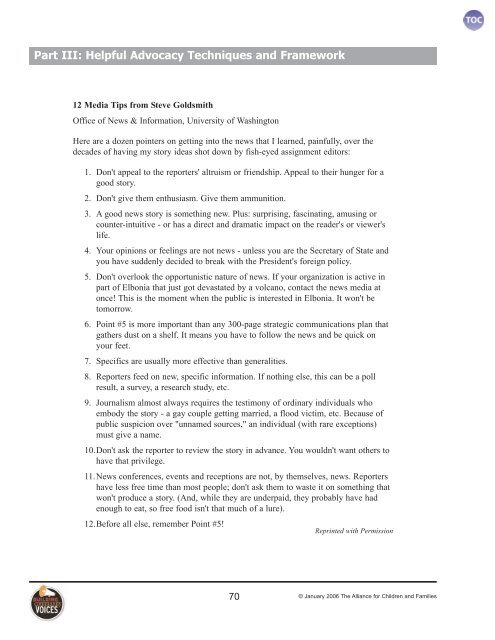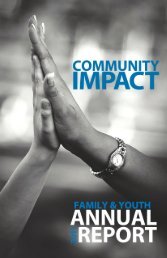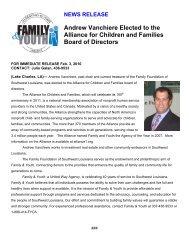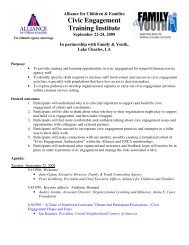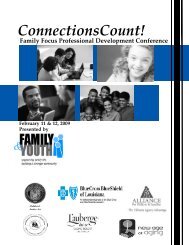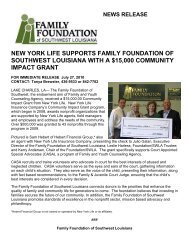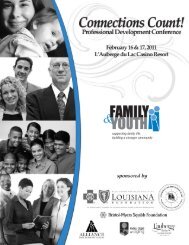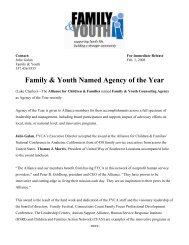Mission-based Advocacy Toolkit from Alliance for Children & Families
Mission-based Advocacy Toolkit from Alliance for Children & Families
Mission-based Advocacy Toolkit from Alliance for Children & Families
You also want an ePaper? Increase the reach of your titles
YUMPU automatically turns print PDFs into web optimized ePapers that Google loves.
Part III: Helpful <strong>Advocacy</strong> Techniques and Framework<br />
12 Media Tips <strong>from</strong> Steve Goldsmith<br />
Office of News & In<strong>for</strong>mation, University of Washington<br />
Here are a dozen pointers on getting into the news that I learned, painfully, over the<br />
decades of having my story ideas shot down by fish-eyed assignment editors:<br />
1. Don't appeal to the reporters' altruism or friendship. Appeal to their hunger <strong>for</strong> a<br />
good story.<br />
2. Don't give them enthusiasm. Give them ammunition.<br />
3. A good news story is something new. Plus: surprising, fascinating, amusing or<br />
counter-intuitive - or has a direct and dramatic impact on the reader's or viewer's<br />
life.<br />
4. Your opinions or feelings are not news - unless you are the Secretary of State and<br />
you have suddenly decided to break with the President's <strong>for</strong>eign policy.<br />
5. Don't overlook the opportunistic nature of news. If your organization is active in<br />
part of Elbonia that just got devastated by a volcano, contact the news media at<br />
once! This is the moment when the public is interested in Elbonia. It won't be<br />
tomorrow.<br />
6. Point #5 is more important than any 300-page strategic communications plan that<br />
gathers dust on a shelf. It means you have to follow the news and be quick on<br />
your feet.<br />
7. Specifics are usually more effective than generalities.<br />
8. Reporters feed on new, specific in<strong>for</strong>mation. If nothing else, this can be a poll<br />
result, a survey, a research study, etc.<br />
9. Journalism almost always requires the testimony of ordinary individuals who<br />
embody the story - a gay couple getting married, a flood victim, etc. Because of<br />
public suspicion over "unnamed sources," an individual (with rare exceptions)<br />
must give a name.<br />
10.Don't ask the reporter to review the story in advance. You wouldn't want others to<br />
have that privilege.<br />
11.News conferences, events and receptions are not, by themselves, news. Reporters<br />
have less free time than most people; don't ask them to waste it on something that<br />
won't produce a story. (And, while they are underpaid, they probably have had<br />
enough to eat, so free food isn't that much of a lure).<br />
12.Be<strong>for</strong>e all else, remember Point #5!<br />
70<br />
Reprinted with Permission<br />
© January 2006 The <strong>Alliance</strong> <strong>for</strong> <strong>Children</strong> and <strong>Families</strong>


